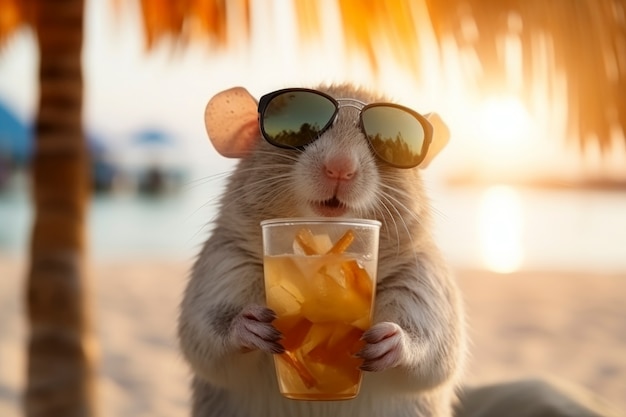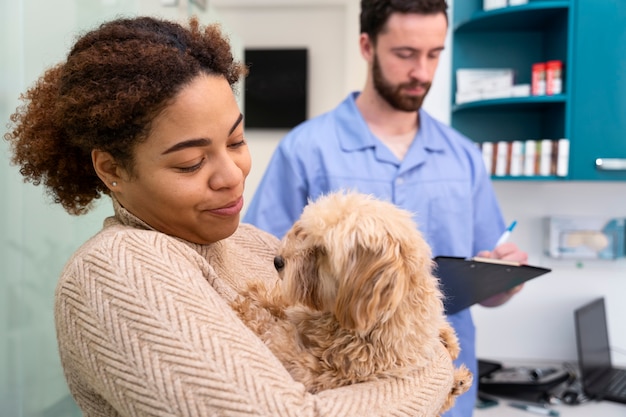Hot Weather Livestock and Pet Care Tips for Laredo Owners

Hot Weather Livestock and Pet Care Tips for Laredo Owners
August in Laredo is notorious for its blazing heat, and if you share your life with pets or livestock, you know just how challenging these high temperatures can be. At Rio Grande Veterinary Clinic, located at 3311 East Del Mar Blvd Suite 201, Laredo, TX 78041, our veterinary professionals understand the unique demands that summer weather places on animals in Laredo and surrounding communities. Whether you have a loyal family dog, a herd of cattle, or a flock of backyard chickens, keeping them safe and comfortable during these hot months is a top priority.
This guide will walk you through the essentials of hot weather pet care and livestock care in Laredo. You will learn how to spot signs of heat stress, understand the causes behind these dangers, explore both at-home and professional strategies for prevention and treatment, and know exactly when to schedule an appointment with our team of veterinarians. Throughout, you will find practical tips tailored for the Laredo climate, helping you make confident choices for your animals’ wellbeing. If you are concerned about your pet’s health during these hot months or want more information about a comprehensive pet exam, you can read more about our comprehensive pet examinations for optimal health and wellness.
Recognizing Heat Stress in Pets and Livestock
High temperatures can quickly turn dangerous for animals, especially in a region like Laredo where the sun seems relentless. Heat stress is a real risk not only for pets but also for livestock, and early recognition is crucial for their safety.
Common Signs of Overheating in Pets
For pets like dogs and cats, symptoms of heat stress include excessive panting, drooling, restlessness, and difficulty breathing. You may notice that your pet is seeking shade constantly, has bright red gums, or seems lethargic. In more severe cases, vomiting, diarrhea, or even collapse can occur. These warning signs indicate that your pet is struggling to regulate their body temperature and needs immediate cooling.
Recognizing Heat Stress in Livestock
Livestock, including cattle, goats, and horses, exhibit heat stress differently. Key signs to watch for are open-mouth breathing, increased respiratory rate, drooping ears, reluctance to move, and standing in a group without grazing. You may also notice decreased milk production in dairy animals or reduced feed intake. Horses can display excessive sweating, muscle tremors, and in severe cases, colic-like symptoms.
When to Worry
If any of your animals are showing these signs, especially during a heatwave, it is time to take action. Heat stress can progress quickly to heatstroke, which is a life-threatening emergency. Recognizing these symptoms early gives you the best chance to intervene and keep your animals safe.
Why Hot Weather Is So Risky for Animals in Laredo
Understanding why animals are so vulnerable during Laredo’s summer months can help you prevent problems before they start. Livestock care in Laredo and hot weather pet care require different approaches than in cooler climates.
The Laredo Climate Challenge
Laredo’s climate is characterized by high humidity and temperatures that often soar above 100°F in August. This environment makes it difficult for animals to cool themselves, especially those that are older, overweight, or have thick coats. Asphalt and concrete surfaces heat up rapidly, creating additional hazards for pet paws and livestock hooves.
Unique Risks for Local Livestock
Livestock in Laredo often face challenges such as limited shade in pastures, crowded pens, and the need for constant access to fresh water. Cattle and horses are particularly prone to dehydration and heat stress if water sources become too warm or scarce. Sheep and goats, with their wool or thick coats, are also at risk for overheating if not properly managed.
Urban Pets and Outdoor Hazards
For pets in urban areas, hot weather pet care means being vigilant about walks during cooler parts of the day and avoiding leaving animals in parked vehicles, even for a few minutes. Pavement temperatures can burn paws, and indoor pets can become overheated if air conditioning fails or if windows are left closed without adequate ventilation.
Professional Treatment Options and Veterinary Support
When heat stress is suspected, timely intervention can make all the difference. Our veterinary team at Rio Grande Veterinary Clinic is equipped to help both pets and livestock recover from the dangers of hot weather.
Veterinary Care for Overheated Pets
Treatment for heat stress in pets typically involves immediate cooling, intravenous fluids, and careful monitoring. Our veterinarians may use cool water soaks, fans, and specialized temperature regulation techniques to bring your pet’s body temperature down safely. Diagnostic testing, such as blood work panel testing for pets, is often recommended to assess organ function and determine if internal damage has occurred.
For pets with chronic health conditions or seniors, our specialized senior pet care services offer tailored support to help them cope with the stress of hot weather. Our team can also assess for secondary complications such as dehydration or heat-induced gastrointestinal issues.
Livestock Heat Stress Management
Livestock experiencing heat stress require immediate attention. Veterinary management involves moving animals to shaded areas, providing cool water, and sometimes administering electrolyte solutions. In severe cases, intravenous fluids or medications may be necessary. Our team provides general veterinary medicine for livestock as well as specific herd health support to help mitigate the effects of Laredo’s extreme summer heat.
Additionally, our veterinarians can offer on-site services for urgent livestock cases, ensuring your animals receive timely care without the added stress of transport.
Prevention and Home Care: Keeping Animals Safe in the Heat
Preventing heat stress is always easier and safer than treating it after the fact. With some planning, you can help your pets and livestock thrive, even during Laredo’s hottest days.
Practical Steps for Pet Owners
To protect your pets, ensure they always have access to shade and cool, fresh water. Walk dogs early in the morning or late in the evening when temperatures are lower. Watch for hot pavement by placing your hand on the surface for several seconds—if it’s too hot for you, it’s too hot for your pet. Never leave pets unattended in vehicles, as temperatures rise quickly and can become fatal in just minutes.
Regular comprehensive pet examinations are a great way to catch underlying conditions that may increase your pet’s risk for heat stress. Our veterinary professionals can advise you on hydration strategies, safe exercise routines, and dietary adjustments during the summer.
Livestock Care in Laredo: Summer Strategies
For livestock, prevention involves providing ample shaded areas, whether through trees, constructed shelters, or shade cloths. Water sources should be checked multiple times daily to ensure they are clean and cool. Rotating pastures can help prevent overgrazing and reduce dust, which can compound heat issues.
Monitor herd density; overcrowding increases heat buildup and stress. For cattle, goats, and sheep, consider early morning or evening feeding, as animals tend to eat less when temperatures are high. Horses should be cooled out gradually after exercise, and all livestock benefit from regular livestock deworming services and health checks to ensure they are in their best condition to handle the heat.
Special Considerations for Senior Animals
Older pets and livestock are at increased risk during hot weather. Their ability to regulate temperature is reduced, and chronic medical conditions can make them more vulnerable. Extra care, frequent monitoring, and regular senior pet care consultations can make a significant difference in their wellbeing during the summer months.
When to Call a Veterinarian: Knowing When Professional Help Is Needed
Despite your best efforts, there may be times when your pet or livestock needs professional veterinary support. Acting quickly can save lives, and our veterinary team is here to help.
Red Flags for Immediate Veterinary Care
Seek immediate veterinary attention if your pet or livestock shows signs such as persistent vomiting, diarrhea, collapse, seizures, or unresponsiveness. For pets, signs like bright red or pale gums, rapid heartbeat, or labored breathing are also reasons to call right away. Livestock that stops eating, isolates itself, or shows difficulty walking may be in serious trouble.
Scheduling Care in Laredo and Surrounding Communities
If you are in Laredo or nearby communities and notice any of these warning signs, do not wait to reach out. Our veterinary professionals are ready to help with a full range of in-clinic and mobile services, ensuring your animals get the care they need when it matters most. Scheduling a wellness visit or health check before the peak of summer can help identify risks early.
Keeping Your Animals Safe: Take Action for a Healthy Summer
The intense summer heat in Laredo is a challenge, but with proactive hot weather pet care and attentive livestock care in Laredo, you can keep your animals comfortable and safe. At Rio Grande Veterinary Clinic, our team of veterinarians is dedicated to supporting your pets and livestock through every season. We encourage you to schedule an appointment for a wellness check, discuss preventive strategies, or seek guidance if you notice any warning signs of heat stress.
If you are searching for a compassionate "vet near me," you can trust our veterinary professionals to provide quality care right here at 3311 East Del Mar Blvd Suite 201, Laredo, TX 78041. Let us help you create a summer care plan tailored for your animals’ needs in Laredo and surrounding communities. To learn more or schedule your next appointment, call us at (830) 203-0586 or explore our comprehensive pet examinations for optimal health and wellness. Your pets and livestock deserve the very best in hot weather pet care—let’s work together to keep them happy and healthy all summer long.
This article is intended for informational purposes only and should not replace professional veterinary advice. Always consult with your veterinarian regarding any concerns about your animal’s health, especially during extreme weather conditions. For urgent concerns, contact a local veterinary professional immediately.

















